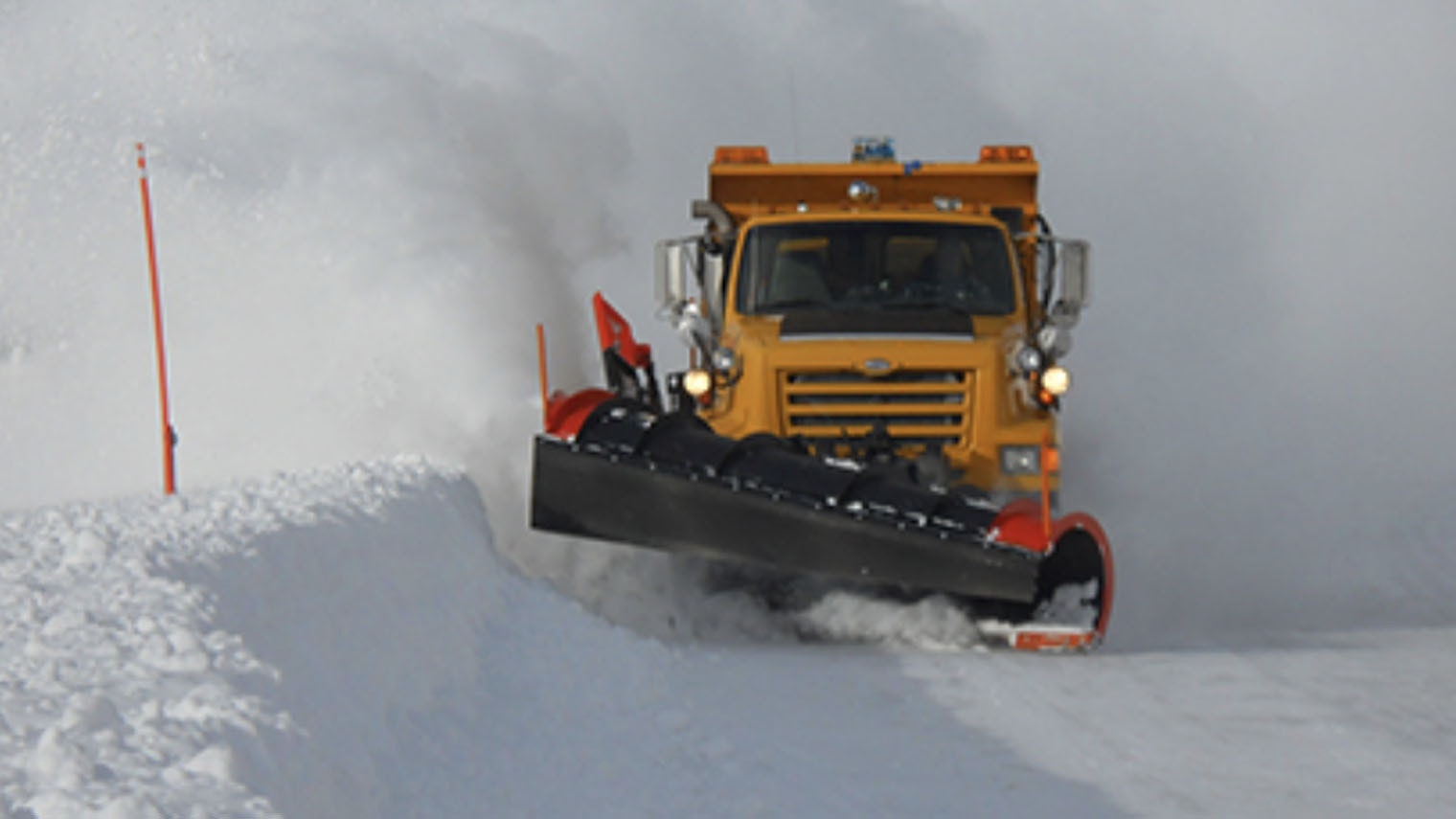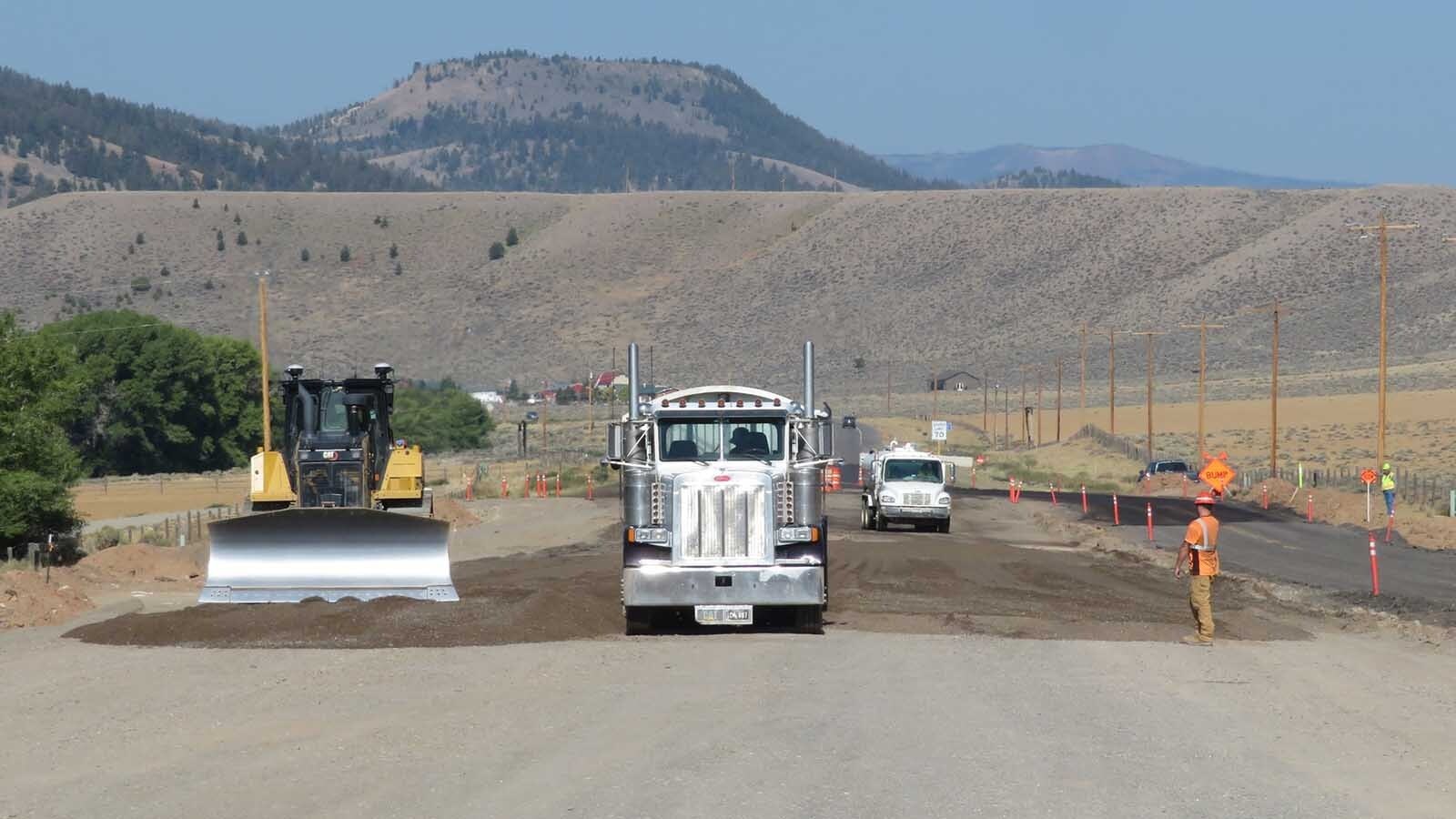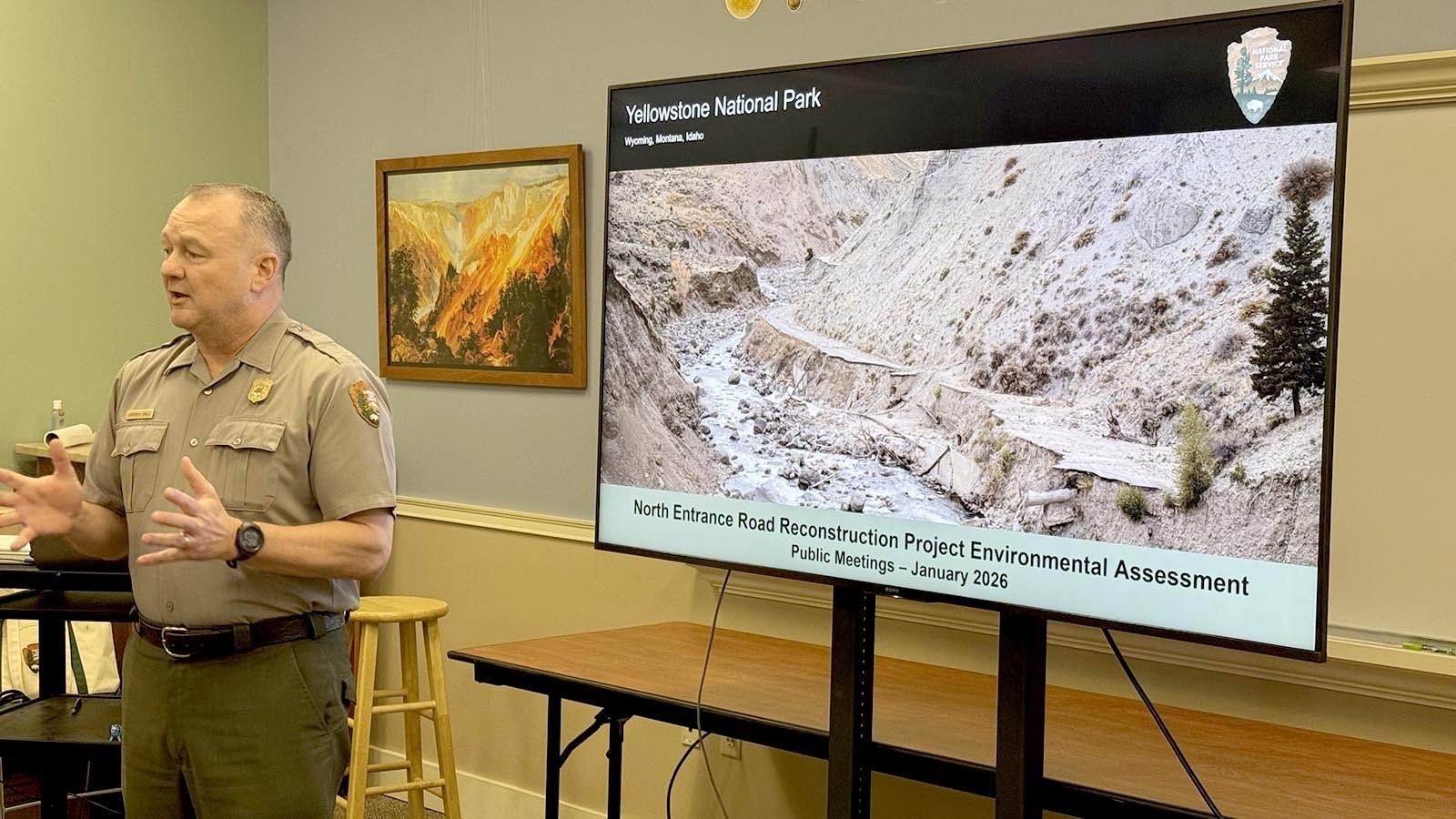Magnesium chloride highway de-icer potentially poisoning fish has raised some concern in Montana, but that shouldn’t be a problem in Wyoming, a biologist says.
Magnesium chloride runoff from icy Montana highways into roadside fisheries “has been a concern we’ve dealt with several times over the years,” Trevor Selch, a fisheries pollution control biologist with Montana Fish, Wildlife and Parks told Cowboy State Daily.
The chemical can be poisonous to fish. And while there haven’t been any major die-offs in the Big Sky State as a result, there was quite a scare a few years ago, he said.
“A few years back, we literally had a semi spill the entire load (of magnesium hloride de-icer) into a river,” he said. “We immediately investigated and even deployed sentinel fish in cages, took benthic macro-invertebrate samples and could not detect any effects. Not saying there aren’t any, but hard to detect.”
Wyoming hasn’t had any such spooky incidents, said Alan Osterland, chief of fisheries with the Wyoming Game and Fish Department.
“We do not know of any adverse effects of mag chloride applications onto roadways in the state relating to fish health or watershed health,” he said.
Expensive Stuff
The Wyoming Department of Transportation uses magnesium chloride de-icer on roads, bridges and highways, but only sparingly, agency spokesman Cody Beers told Cowboy State Daily.
That’s because it’s expensive, he said.
“Magnesium chloride has many of the same properties as salt brine, but it’s more expensive,” he said.
When winter hits and roads start to ice up, WYDOT relies primarily on salt brine, sometimes mixed with sand, Beers said.
Good For Fish, Bad For Vehicles
So, while Wyoming’s fish seem safe, that could be bad news for vehicles.
Beers said that vehicles rusting from salt brine isn’t nearly as bad as it used to be.
“Today’s vehicles are made much differently than vehicles were in the 1950s, ’60s and ’70s,” he said.
That’s because most modern vehicles have rust-resistant undercarriage coatings.
Even so, the salt brine can still corrode exposed wiring on the underside of vehicles or trailers, and at least some risk of rust remains, Beers said.
“I still tell people that after a major storm, they should wash their vehicles,” he said.





